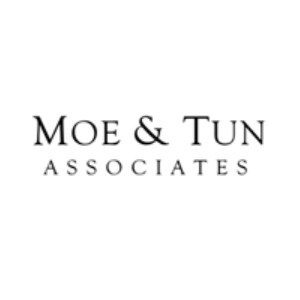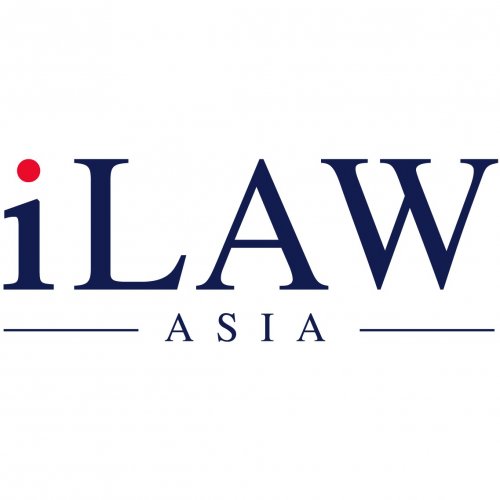Best Commercial Litigation Lawyers in Yangon
Share your needs with us, get contacted by law firms.
Free. Takes 2 min.
List of the best lawyers in Yangon, Myanmar
About Commercial Litigation Law in Yangon, Myanmar
Commercial litigation in Yangon, Myanmar involves resolving disputes arising from business and commercial transactions. These disputes may involve contracts, partnerships, trade, joint ventures, the sale and purchase of goods, intellectual property, employment issues, or shareholder disagreements. The legal landscape in Myanmar is evolving, with commercial courts and procedural rules developing to meet the changing needs of a growing economy. Most commercial disputes in Yangon are heard in civil courts, and the process often emphasizes both formal litigation and alternative dispute resolution.
Why You May Need a Lawyer
Commercial litigation can be complex, involving multiple parties and significant financial stakes. Here are some common situations where you may need a lawyer:
- If you are a business owner facing a breach of contract by a supplier, customer, or business partner
- If your business is involved in a dispute over payment, debt recovery, or non-performance of obligations
- When shareholders disagree on company management or profit distribution
- If you are facing intellectual property infringement or trade secrets violations
- If you want to enforce or challenge a commercial agreement
- If your business is exposed to legal claims from employees, partners, or competitors
- When seeking compensation for losses caused by another party's actions in a business context
- If you wish to resolve a commercial dispute through mediation or arbitration instead of court
Local Laws Overview
Commercial litigation in Yangon is primarily governed by the Code of Civil Procedure, the Specific Relief Act, the Contract Act, and other laws relevant to specific commercial issues such as the Companies Law and the Arbitration Law. Myanmar's commercial court system handles cases involving contracts and trade disputes. Key aspects to note include:
- Written contracts hold significant weight, but even oral agreements may be enforceable in some cases
- Limitation periods apply, and actions must be filed within certain timeframes
- Court proceedings are typically conducted in Myanmar language, with official translations where required
- Mediation and arbitration are increasingly recognized as viable pathways to resolution
- Foreign investors and companies may face additional procedural requirements
- Court fees and document submissions must follow prescribed formats and rules
Frequently Asked Questions
What is commercial litigation?
Commercial litigation refers to legal proceedings involving disputes over business transactions or business relationships, such as breach of contract, partnership disputes, or other commercial conflicts.
How do I start a commercial litigation case in Yangon?
You begin by filing a claim or plaint with the appropriate court, setting out the facts, legal grounds, and remedies sought. A lawyer can assist with the drafting and submission of documents.
What types of disputes are most common in Myanmar's commercial courts?
Common disputes include breaches of contract, unpaid debts, partnership disagreements, and issues related to joint ventures and property transactions.
Can disputes be settled outside the court?
Yes, many commercial disputes can be resolved through negotiation, mediation, or arbitration without going to trial. Many contracts include arbitration clauses.
How long does a commercial litigation process usually take?
The duration varies, depending on case complexity, court schedules, and cooperation between parties. Simple cases can take several months, while complex matters may take years.
Do I need a lawyer to represent my business in court?
While not always mandatory, it is highly advisable to have legal representation due to complex procedures and to maximize your chance of a favorable outcome.
What documents are required to file a commercial case?
Typical documents include the contract or agreement in dispute, correspondence between parties, supporting invoices, receipts, and any other evidence supporting your claim or defense.
Are judgments from Myanmar courts enforceable against foreign companies?
Yes, judgments can be enforced against foreign entities with assets in Myanmar, subject to local laws and international enforcement treaties or reciprocal agreements.
What costs are involved in commercial litigation?
Litigation costs include court filing fees, lawyer's fees, translation costs if applicable, and expenses for expert witnesses or documentation. Some costs can be recovered if you win the case.
Can I appeal a court decision in a commercial litigation matter?
Yes, parties can appeal to higher courts within Myanmar if dissatisfied with a lower court decision, but there are strict time limits and procedural requirements for appeals.
Additional Resources
For further support or guidance in commercial litigation matters in Yangon, the following resources may be helpful:
- The Myanmar Bar Association
- Yangon Region Court Office
- Attorney General's Office of Myanmar
- Chambers of Commerce and Industry associations
- Myanmar Investment Commission for business-related regulatory issues
- Legal aid organizations and dispute resolution centers
Next Steps
If you believe you need assistance with a commercial litigation issue in Yangon, consider the following steps:
- Gather all relevant documents such as contracts, invoices, correspondence, and business records
- Outline the facts of your case in chronological order for clarity
- Consult a licensed Myanmar lawyer experienced in commercial litigation for legal advice
- Discuss possible options including negotiation, mediation, arbitration, or formal court proceedings
- Ensure all communications with opposing parties are documented
- Follow your lawyer's advice regarding deadlines or procedural requirements
- Stay involved and informed throughout the process
Acting promptly and seeking professional legal support early can protect your interests and improve the likelihood of a satisfactory outcome in a commercial dispute.
Lawzana helps you find the best lawyers and law firms in Yangon through a curated and pre-screened list of qualified legal professionals. Our platform offers rankings and detailed profiles of attorneys and law firms, allowing you to compare based on practice areas, including Commercial Litigation, experience, and client feedback.
Each profile includes a description of the firm's areas of practice, client reviews, team members and partners, year of establishment, spoken languages, office locations, contact information, social media presence, and any published articles or resources. Most firms on our platform speak English and are experienced in both local and international legal matters.
Get a quote from top-rated law firms in Yangon, Myanmar — quickly, securely, and without unnecessary hassle.
Disclaimer:
The information provided on this page is for general informational purposes only and does not constitute legal advice. While we strive to ensure the accuracy and relevance of the content, legal information may change over time, and interpretations of the law can vary. You should always consult with a qualified legal professional for advice specific to your situation.
We disclaim all liability for actions taken or not taken based on the content of this page. If you believe any information is incorrect or outdated, please contact us, and we will review and update it where appropriate.










